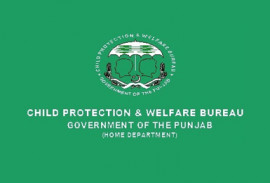
Budgetary allocations, governance and politicisation of education were among the challenges facing the education sector in Pakistan. The country spent less than two per cent of its gross domestic product (GDP) on education and ranked 177th globally in terms of public spending on education.
These observations were part of the second issue of UNDP’s Development Advocate Pakistan – a quarterly publication that looks at a specific development sector in each edition.
The latest issue, on making education work: the governance conundrum, was launched on Thursday at the Forman Christian College Centre for Public Policy and Governance (CPPG).
The first issue, launched earlier this year, focused on local governance.
According to the publication, Pakistan’s education expenditures fell behind that of India and Nepal, which spent 3.3% and 4.7% of their GDPs on education, respectively.
Besides low allocation, the publication also pointed towards low development expenditures. Citing figures from 2012-13, it said development expenditure on education was around 50% of the allocation.
Education economist and researcher Dr Faisal Bari said he was unable to understand what was keeping the education sector from performing despite introduction of public sector reforms in education.
“It lags despite there being better salaries, training and reform in the public sector,” he said at a panel discussion.
With the Punjab recording the highest rate of net enrollment, Balochistan lagged behind at all levels, from primary to high school education.
Dr Bari’s piece in the publication showed that while 35% of the girls between five and 9 years were enrolled in schools in Balochistan, the figure dropped to 17% for the 11 to 13 year age group and to 7% for the 14 to 15 year bracket.
According to the 2011 data quoted in Dr Bari’s piece, over 30% of school-going children attended private schools. He said regulation of private sector in education was vital.
“These are spaces where our children go for education. They need to be regulated.”
With the acknowledgment of free and compulsory education as a right for the 5 to 16 year age group under Article 25-A of the Constitution, Dr Bari argued for equity in education in a heterogeneous education sector. “If we have to move towards equity, we will have to look into regularisation of private spaces in the education sector.”
“There has been no improvement in the quality of education, though the quantity might have improved,” said Dr Fareeha Zafar, educationist and a director at the Society for the Advancement of Education.
She said that with quality being gauged through the learning outcomes, it was essential to understand what was being taught and how it was being transmitted to the students.
She also expressed reservations over what she termed “over-islamisation” of curriculum.
CPPG Director Dr Saeed Shafqat said, “Schools are no longer teaching. And that is why you have tuition centres everywhere.”
“Pakistanis want their children to be educated. The public sector has failed to facilitate this,” said Mosharraf Zaidi, campaign director for Alif Ailaan.
Published in The Express Tribune, June 27th, 2014.





1732012115-0/Untitled-design-(14)1732012115-0-270x192.webp)











COMMENTS
Comments are moderated and generally will be posted if they are on-topic and not abusive.
For more information, please see our Comments FAQ